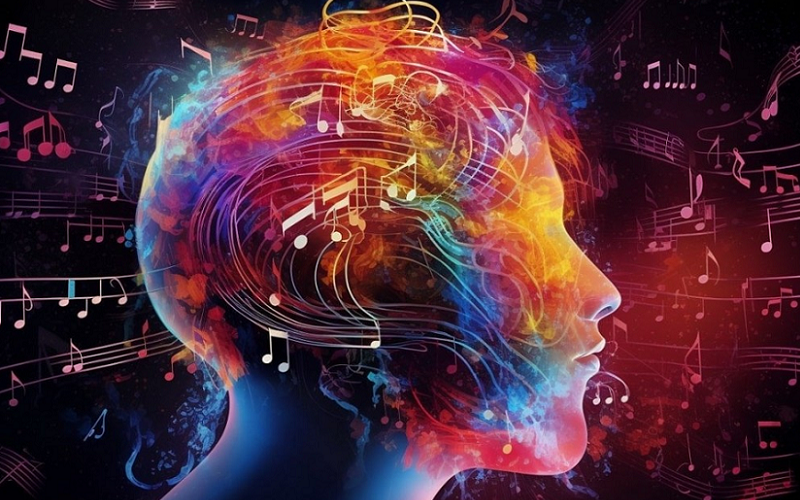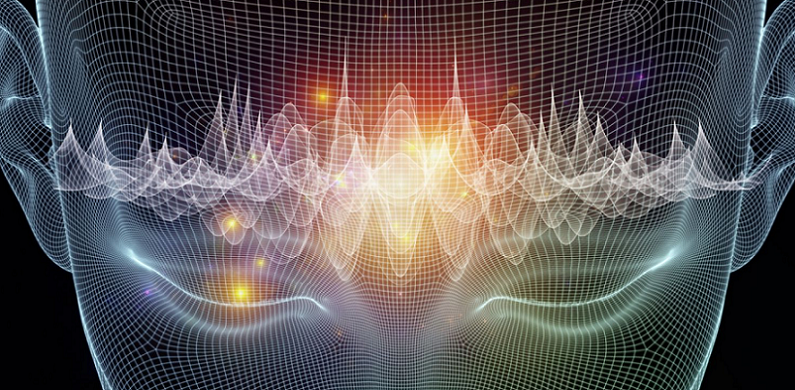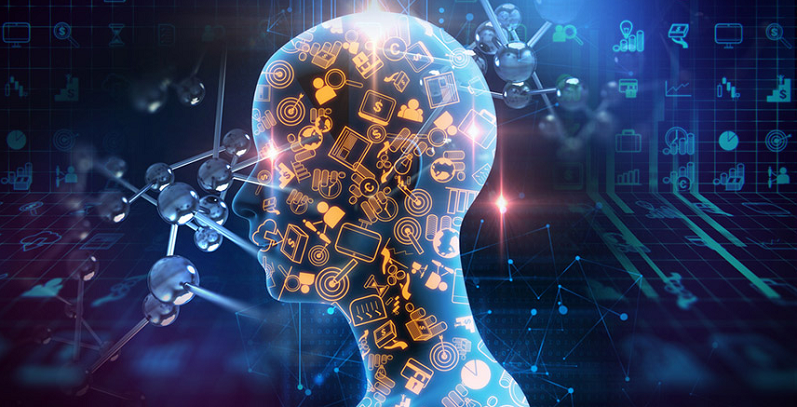
Music speaks to us in a language beyond words, resonating deep within our brains and hearts. It has the power to uplift, soothe, energize, and even heal. But have you ever wondered how different musical genres specifically affect our brain and cognitive health? Here we explore the fascinating world of music and neuroscience to explore how various genres — from the structured harmonies of classical music to the soulful rhythms of jazz, and the vibrant beats of rock and pop — impact our mental processes, emotions, and overall brain health.
Contents
The Science of Music and the Brain
Music is not just an art form but also a complex neurological experience. Here we look into the intricate relationship between music and the brain, exploring how we perceive music and how different genres can trigger varied responses in our neural networks.
Basic Neuroscience of Music Perception
Understanding how we process music begins with the basics of neuroscience. When we listen to music, sound waves are transformed into neural signals in the auditory cortex. This process involves several brain regions, including those responsible for processing rhythm, melody, and pitch. The limbic system, particularly the amygdala and hippocampus, plays a crucial role in processing the emotional content of music. This intricate process illustrates how deeply music is intertwined with our neurological functions.
Music perception is not just about hearing; it’s a multi-sensory experience. The brain integrates information from various senses to create the rich experience of music. This multisensory processing can explain why music often evokes strong emotional and physical responses.
How Different Genres of Music Trigger Various Brain Responses
Different musical genres can elicit distinct responses in the brain due to their unique characteristics. For instance, classical music, often characterized by its complex structure and harmonies, can stimulate parts of the brain involved in attention and memory. In contrast, the repetitive and rhythmic nature of genres like electronic or pop can activate brain regions related to movement and coordination.
Studies using functional magnetic resonance imaging (fMRI) have shown that music can activate the brain’s reward centers, similar to other pleasurable stimuli like food or love. These responses vary depending on the genre and even the listener’s personal preferences, highlighting the subjective nature of musical experience.
The Role of Emotion and Memory in Music Perception
Emotion and memory are integral to how we experience music. The limbic system, which processes emotions, is highly engaged when we listen to music. This engagement can lead to the release of neurotransmitters like dopamine, which are associated with pleasure and reward.
Music’s ability to evoke memories is another fascinating aspect. The phenomenon known as the ‘nostalgia effect’ occurs when a piece of music transports us back to a specific time or place. This is because music and memory are closely linked in the brain, with the hippocampus playing a key role in this connection. For individuals with conditions like Alzheimer’s, music can be a powerful tool to evoke memories and emotions that might otherwise be inaccessible [1].
Classical Music and the Brain
Classical music, with its rich history and complex structures, holds a special place in the world of music therapy and cognitive research.
Effects of Classical Music on Cognitive Functioning
Classical music is renowned for its intricate compositions, which can have a profound impact on cognitive functioning. Research has shown that listening to classical music can enhance mental alertness and improve cognitive skills. It’s believed that the complexity of classical music stimulates the brain’s neural networks, enhancing brainwave activity associated with attention and problem-solving.
This genre’s influence extends beyond mere enjoyment—it engages the brain in a way that fosters higher-order thinking, making it a valuable tool in educational and therapeutic settings. The nuanced harmonies and rhythms in classical compositions require active listening, which can sharpen focus and improve concentration.
Case Studies: Mozart Effect and Stress Reduction
The ‘Mozart Effect’ is a well-known concept suggesting that listening to Mozart’s music can temporarily enhance spatial-temporal reasoning abilities. While the extent of this effect is debated, it underscores the potential cognitive benefits of classical music. Further studies have shown that classical music can reduce stress and anxiety levels. The calming nature of many classical pieces can slow down heart rate and lower blood pressure, creating a state of relaxation which is beneficial for mental health.
The impact of classical music on stress reduction is not just psychological but physiological as well. Its soothing qualities can trigger the release of stress-reducing hormones, providing a natural, therapeutic form of relief.
Classical Music and Its Impact on Memory and Learning
Classical music’s influence on memory and learning is another area of interest. Certain studies suggest that background classical music can enhance memory retention and learning efficiency. This phenomenon is linked to the music’s ability to create a positive learning environment, improve mood, and increase concentration levels.
For students and lifelong learners, classical music can be a powerful tool. It can help create an optimal learning state, where focus is heightened and distractions are minimized. Moreover, for people with memory impairments, classical music can serve as a cue to recall forgotten memories, demonstrating its potential in memory care and rehabilitation [2].

Jazz and the Brain
Jazz, a genre known for its improvisational nature and complex rhythms, offers a unique auditory experience that has intriguing implications for brain function.
Cognitive Benefits of Listening to Jazz
Listening to jazz engages the brain in a way that can enhance various cognitive functions. The improvisational aspect of jazz challenges the listener’s anticipation and expectation, stimulating the brain’s reward centers. This constant unpredictability in jazz music requires active mental engagement, which can enhance cognitive flexibility — the ability to adjust thinking from one concept to another.
Moreover, the complex rhythms and syncopation in jazz are thought to improve temporal processing and auditory skills. This can have a broader impact on cognitive areas such as language processing, attention, and even mathematical abilities.
Jazz, Creativity, and Neural Plasticity
Jazz not only stimulates the listener’s brain but also represents a remarkable example of neural plasticity, particularly in musicians who play this genre. The improvisation that characterizes jazz requires real-time creative processing, which engages the brain’s higher-order thinking areas like the prefrontal cortex.
Studies involving jazz musicians have shown that during improvisation, there is a unique pattern of brain activity involving both the expressive and interpretative regions of the brain. This indicates that jazz musicians may develop enhanced brain connectivity and plasticity, which contributes to improved cognitive skills like creativity and problem-solving.
The Role of Improvisation in Brain Stimulation
The improvisational element in jazz is not only a musical technique but also a significant stimulator for the brain. When musicians improvise, they engage in a complex neural process, involving areas related to emotion, memory, sensory processing, and motor skills.
This complex neural engagement is also beneficial for listeners. Engaging with improvised music can lead to heightened emotional responses and increased neural connectivity. This suggests that the dynamic and unpredictable nature of jazz can stimulate the brain in ways that more structured music genres might not [3].
Rock and Pop Music and the Brain
Rock and pop music, prevalent and beloved genres worldwide, have a distinctive influence on the brain. These genres, often characterized by strong beats, catchy melodies, and relatable lyrics, engage listeners in ways that can impact emotional responses, brain wave patterns, and even social and cultural cognition.
Emotional Responses to Rock and Pop Music
Rock and pop music often evoke strong emotional responses. Their typically upbeat tempo and energetic rhythm can stimulate the release of neurotransmitters like dopamine, which are associated with feelings of pleasure and euphoria. This is why these genres are often linked to mood enhancement and can be especially effective in elevating spirits and creating a sense of communal experience at concerts or social gatherings.
The lyrical content in rock and pop songs, often revolving around themes like love, struggle, or celebration, can also resonate deeply with listeners, allowing them to connect their personal experiences with the music. This emotional connection can lead to a deeper engagement with the music and a more profound impact on mood and mental state.
The Influence of Rhythm and Tempo on Brain Waves
The rhythm and tempo of rock and pop music have a significant impact on brain waves. The strong, regular beat patterns common in these genres can stimulate the brain and align brain wave frequencies with the rhythm of the music. This phenomenon, known as ‘entrainment,’ can lead to increased concentration and focus, making these genres popular choices for workouts or tasks requiring sustained attention.
Entrainment can also facilitate a meditative state, where the mind is calm yet alert. This dual effect — both energizing and focusing — makes rock and pop music uniquely versatile in its impact on the brain [4].
Social and Cultural Implications on Cognitive Processing
Rock and pop music are not just individual experiences; they play a significant role in social and cultural identity formation. These genres often reflect generational attitudes, societal issues, and cultural trends, influencing listeners’ perceptions and beliefs.
By engaging with rock and pop music, listeners can develop a sense of belonging to a larger community with shared values and experiences. This social aspect of music listening can impact cognitive processes related to empathy, social understanding, and cultural awareness. The communal experience of enjoying these genres, whether at live concerts or through shared playlists, fosters social connections and enhances emotional intelligence.

Electronic and Ambient Music and the Brain
In the diverse spectrum of musical genres, electronic and ambient music stand out for their unique compositions and effects on the brain. These genres, often characterized by synthesized sounds and atmospheric qualities, offer a distinct auditory experience that can influence relaxation, focus, mood, and even therapeutic practices.
The Effects of Ambient Music on Relaxation and Focus
Ambient music, with its gentle, flowing soundscapes, is known for its calming effect on the mind. This genre is often used in meditation and relaxation practices due to its ability to help reduce stress and anxiety. The slow tempos and minimalistic structures of ambient music can facilitate a state of tranquility, encouraging the mind to unwind and relax.
Moreover, ambient music’s subtle and non-intrusive nature makes it an excellent background sound for enhancing concentration. Whether for studying, working, or engaging in creative activities, the soothing qualities of ambient music can help maintain focus while minimizing distractions.
Electronic Music and Its Influence on Mood and Arousal
Electronic music, with its wide range of sub-genres, can have varied effects on mood and arousal. Upbeat and rhythmically dynamic electronic music can be invigorating and energizing, making it popular for exercise and dance environments. This type of music can stimulate the brain’s reward systems, releasing endorphins and creating feelings of excitement and happiness.
On the other hand, more downtempo electronic music can induce a relaxed yet attentive state, ideal for tasks requiring sustained concentration. The synthetic sounds and beats in electronic music can also evoke emotions and nostalgia, connecting listeners to memories or imagined landscapes.
The Use of Electronic Music in Therapeutic Settings
Electronic and ambient music are increasingly being recognized for their therapeutic potential. These genres can be tailored to induce specific mental states, making them useful tools in therapy settings. For instance, ambient music’s calming effect is beneficial in treating anxiety and stress-related disorders [5].
Electronic music’s versatility also makes it suitable for use in various therapeutic contexts, from promoting relaxation and sleep to enhancing mood in people with depressive symptoms. In addition, certain compositions can be used in neurotherapy, aiding in the rehabilitation of cognitive functions in patients with brain injuries or neurodegenerative diseases.
The Impact of Country and Folk Music and the Brain
Country and folk music, genres deeply rooted in storytelling and cultural traditions, have a unique way of resonating with listeners. These genres often evoke a sense of nostalgia and connection, influencing cognitive processes like memory, emotional response, and social cognition.
Emotional Connection and Narrative in Country and Folk Music
Country and folk music are known for their narrative-driven lyrics and emotional melodies. These genres often tell stories of life, love, hardship, and joy, allowing listeners to connect deeply with the music on an emotional level. This emotional engagement can trigger the release of neurotransmitters like oxytocin, which is associated with bonding and empathy.
The storytelling aspect of these genres also engages the brain’s language processing areas, enhancing listeners’ empathy and understanding of diverse life experiences. This engagement is not just passive; it actively involves the listener’s emotions and cognitive processes, creating a rich and immersive experience.
Country Music’s Influence on Memory and Nostalgia
Country music, in particular, has a strong connection to memory and nostalgia. The genre’s often reflective lyrics and familiar melodies can evoke personal memories and a sense of longing or nostalgia. This connection to the past can be especially poignant for individuals with memory impairments, such as those with Alzheimer’s disease, where familiar country tunes can help recall forgotten memories.
The nostalgia effect of country music is not just about recalling specific memories; it also involves the emotional states associated with those memories. This can have a therapeutic effect, providing comfort and a sense of identity, especially for older adults.
The Social Aspect of Folk Music in Cognitive Health
Folk music, with its roots in community and cultural heritage, plays a significant role in social bonding and identity formation. Listening to and participating in folk music can foster a sense of community and belonging, which is essential for mental health and well-being.
The communal nature of folk music, often involving group performances and sing-alongs, can enhance social cognition skills, such as empathy, cooperation, and understanding of social cues. This shared musical experience can strengthen social connections and provide a sense of inclusion and support, which is vital for cognitive and emotional health.
References
[1] The Effects Of Music Genres On The Human Brain
[2] The Brain Science of Listening to a Diverse Array of Music
[3] Network Science and the Effects of Music Preference on Functional Brain Connectivity: From Beethoven to Eminem
[4] How Does Music Affect Your Brain?
[5] How the Brain Responds to Music

